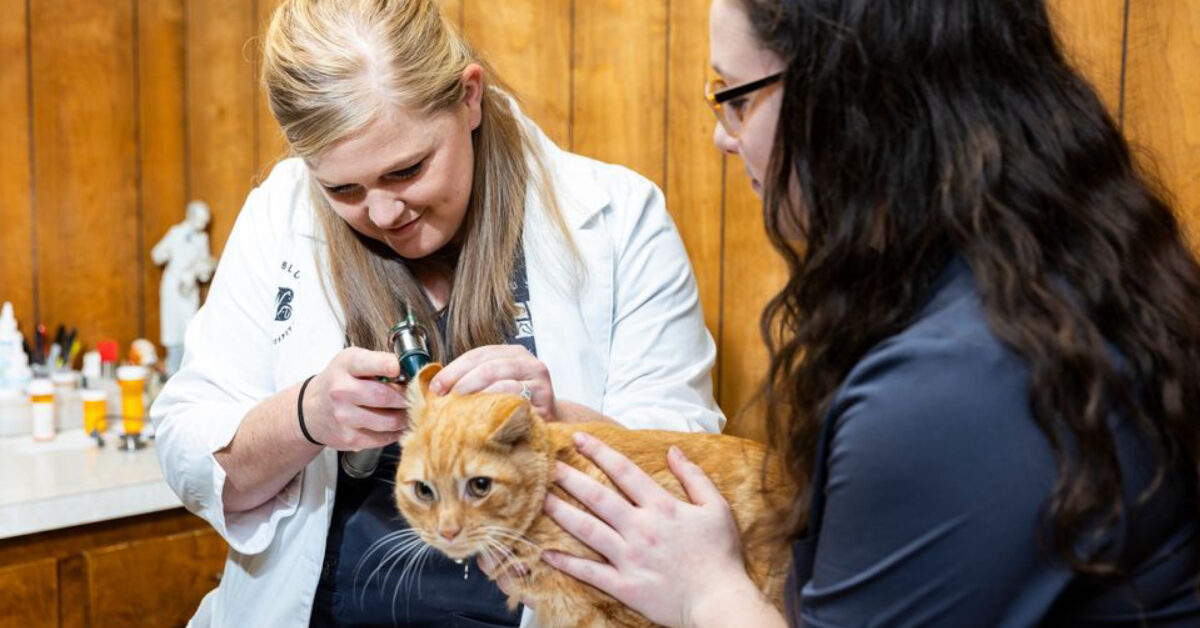
CHOOSING THE BEST PET: Things To Consider Before Pet Adoption
August 2024
‘I Will Survive’ – Predicting Another Middling Season for Saints
August 2024by Kristy Como Armand
Ensuring a long, healthy life for your pet involves more than just love and attention; it requires regular veterinary care. Pets, like humans, benefit significantly from health checkups and preventive measures.
“Your pet cannot tell you if something is wrong – if they are in pain or feeling unwell,” says Dr. Courtney Fontenot, veterinarian at Moss Bluff Animal Hospital. “In fact, most species instinctively hide their symptoms to avoid appearing vulnerable. That’s why regular, routine exams are essential for your pet’s long-term health.”
Dr. Fontenot offers some general guidelines for routine veterinary care:
Annual Health Exams
Pets age faster than humans, making annual exams even more critical for preventing disease, injury, and pain. Establishing a baseline medical history for your pet helps your veterinarian detect any changes in your pet’s health that need attention. Older pets may need more frequent exams.
Early Detection of Health Issues
One of the primary benefits of routine veterinary visits is the early detection of health problems. Regular checkups allow veterinarians to identify subtle changes in your pet’s health before they become serious problems. Early detection often means more effective and less costly treatments, ultimately enhancing your pet’s quality of life.
Vaccinations
Similar to human children, kittens and puppies need a variety of shots to protect them from potentially fatal diseases such as rabies, distemper, parvovirus and others. Starting vaccinations early and following a proper schedule recommended by your veterinarian can keep your pet healthy and help prevent outbreaks of these diseases across the community.
Spay or Neuter
In addition to preventing unwanted litters, spaying or neutering also has health benefits. These procedures may help modify behaviors that can make animals restless or aggressive, and can even help prevent some cancers and other diseases that are commonly seen in older, intact pets. A general recommendation for spaying (females) and neutering (males) dogs and cats would be around six months of age.
Disease Prevention
Heartworm disease, fleas, and ticks pose serious threats to your pet’s health. Heartworms, transmitted by mosquitoes, can be fatal if not treated promptly. Fleas and ticks are carriers of various diseases that can affect both pets and humans. A routine veterinary check-up will include a heartworm test and advise on year-round medications to prevent heartworms, fleas and ticks.
Dental Health
Dental health is often overlooked but is crucial for your pet’s overall health. Dental issues can lead to serious health problems, including heart, liver, and kidney disease. Regular dental checkups and cleanings help prevent tooth decay, gum disease, and infections. Your veterinarian will be able to make individual recommendations based on their evaluation of your pet.
For more information about pet care, call Moss Bluff Animal Hospital at (337) 855-3176 or visit MossBluffAnimalHospital.com.






